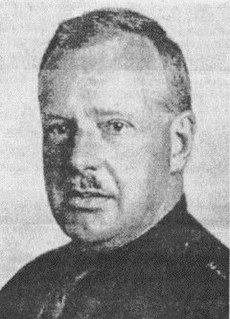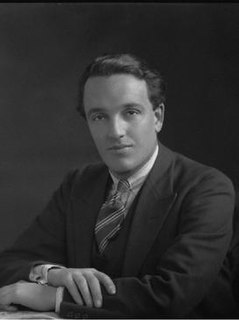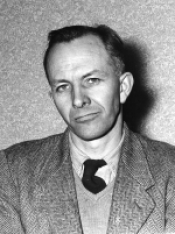Related Research Articles
Neo-fascism is a post-World War II ideology that includes significant elements of fascism. Neo-fascism usually includes ultranationalism, racial supremacy, populism, authoritarianism, nativism, xenophobia and anti-immigration sentiment as well as opposition to liberal democracy, parliamentarianism, liberalism, Marxism, communism and socialism.

The British Union of Fascists (BUF) was a British fascist political party formed in 1932 by Oswald Mosley. Mosley changed its name to the British Union of Fascists and National Socialists in 1936 and, in 1937, to the British Union. In 1939, following the start of the Second World War, the party was proscribed by the British government and in 1940 it was disbanded.
Column 88 was a neo-Nazi paramilitary organisation based in the United Kingdom. It was formed in the early 1970s, and disbanded in the early 1980s. The members of Column 88 undertook military training under the supervision of a former Royal Marine Commando, and also held regular gatherings attended by neo-nazis from all over Europe. The name is code: the eighth letter of the alphabet 'HH' represents the Nazi greeting 'Heil Hitler'. Journalist Martin Walker described Column 88 as a "shadow paramilitary Nazi group".

The White Defence League was a British far-right political group. Using the provocative marching techniques popularised by Oswald Mosley, its members included a young John Tyndall.

Arnold Spencer Leese was a British fascist politician. Leese was initially prominent as a veterinary expert on camels. A virulent anti-Semite, he led his own fascist movement, the Imperial Fascist League, and was a prolific author and publisher of polemics both before and after the Second World War.

The Imperial Fascist League (IFL) was a British fascist political movement founded by Arnold Leese in 1929 after he broke away from the British Fascists. It included a blackshirted paramilitary arm called the Fascists Legion, modeled after the Italian Fascisti. The group espoused anti-Semitism and the dominance of the 'Aryan race' in a 'Racial Fascist Corporate State', especially after Leese met Nazi Party propagandist Julius Streicher, the virulently racist publisher of Der Stürmer; the group later indirectly received funding from the Nazis. Although it had only between 150 and 500 members at maximum, its public profile was higher than its membership numbers would indicate.
The National Fascisti (NF), renamed British National Fascists (BNF) in July 1926, were a splinter group from the British Fascisti formed in 1924. In the early days of the British Fascisti the movement lacked any real policy or direction and so this group split away with the intention of pursuing a more definite path towards a fascist state. The group had 60 members at its creation, and around 500 at its height.

John Warburton Beckett was a British politician who was a Labour Party MP from 1929 to 1931. During the 1930s he joined the fascist movement, first in the British Union of Fascists and later as a founder of the National Socialist League. During World War II he was interned in Britain.
The Nordic League was a far right organisation in the United Kingdom from 1935 to 1939 that sought to serve as a co-ordinating body for the various extremist movements whilst also seeking to promote Nazism. The League was a private organisation that did not organise any public events.
Anthony Francis Xavier Baron was a British far-right political figure in the 1940s and 1950s who founded and headed the English branch of the Nationalist Information Bureau (NATINFORM). Baron has been described as "a stocky man..., with the features of a professional boxer." He operated from a base in Framlingham, Suffolk.
The British People's Party (BPP) was a British far-right political party founded in 1939 and led by ex-British Union of Fascists (BUF) member and Labour Party Member of Parliament John Beckett.
Fascism in Asia refers to political ideologies in Asia that adhered to fascist policies, which gained popularity in many countries in Asia during the 1930s.
Robert Byron Drury Blakeney, generally known as R. B. D. Blakeney, was a British Army officer and fascist politician. After a career with the Royal Engineers, Blakeney went on to serve as President of the British Fascists.
British fascism is the form of fascism promoted by some political parties and movements in the United Kingdom. It is based on British ultranationalism, and had aspects of Italian Fascism and Nazism both before and after World War II.

The Italian Social Movement, renamed in 1972 Italian Social Movement – National Right, was a neo-fascist, nationalist and national-conservative political party in Italy.

The British Fascists was the first political organisation in the United Kingdom to claim the label of fascist, although the group had little ideological unity apart from anti-socialism for much of its existence, and was strongly associated with conservatism. William Joyce, Neil Francis Hawkins, Maxwell Knight and Arnold Leese were amongst those to have passed through the movement as members and activists.

Robert "Bob" Row (1915–1999) was an English fascist from Lancaster, a member of Oswald Mosley's British Union of Fascists (BUF) who was detained by the British government under Defence Regulation 18B during the Second World War. After the war, he wrote and edited British fascist publications and remained a believer in Mosley until his death.
References
- ↑ Peter Barberis, John McHugh and Mike Tyldesley, Encyclopedia of British and Irish Political Organizations
- ↑ David Boothroyd, Politico's Guide to the History of British Political Parties , 2001, p. 17
- ↑ Dave Renton, Fascism, Anti-Fascism and Britain in the 1940s, Basingstoke: Macmillan, 2000, p. 51